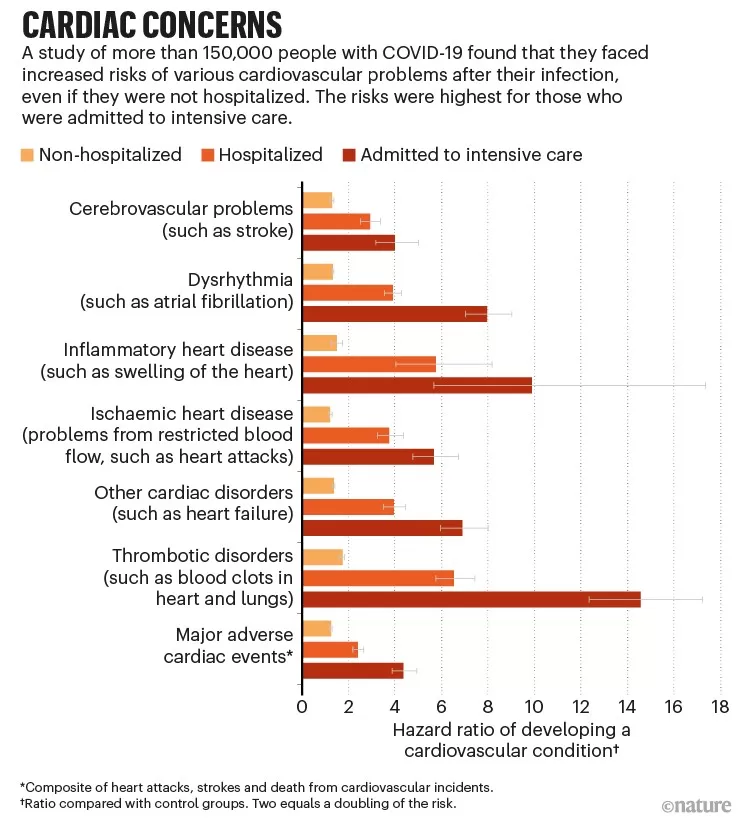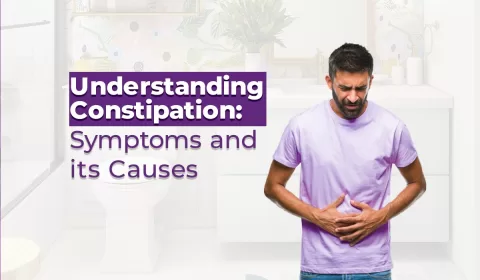COVID heart disease risks have emerged as a critical concern for both adults and children recovering from SARS-CoV-2 infection. Recent studies indicate that even young patients, previously thought to be at low risk, face increased probabilities of developing serious cardiovascular issues such as high blood pressure and myocarditis. Specifically, data shows that post-COVID heart symptoms can affect a significant percentage of pediatric patients, further expanding the need for awareness and timely medical intervention. For adults who survived COVID, the landscape of cardiovascular complications is equally alarming, with many experiencing lingering symptoms categorized under long COVID. It’s essential to recognize these risks for both children and adult COVID survivors to ensure comprehensive care and ongoing monitoring of heart health.
The implications of COVID-19 on cardiac health are becoming increasingly recognized as both children and adults face potential heart disease following infection. Terms like cardiac complications, post-viral heart symptoms, and prolonged COVID-related health effects have begun to infiltrate medical discussions and research. Studies reveal alarming trends of heightened cardiovascular issues among those infected, transcending age and prior health conditions. Furthermore, the long-term effects of COVID-19 on heart function are being closely studied, pointing to a pressing need for healthcare providers to monitor patients for signs of cardiac distress. As we navigate the aftermath of this pandemic, understanding the interconnectedness of COVID-19 and heart health is imperative for effective patient management.
Understanding the Increased Risk of COVID Heart Disease in Children
Recent studies shed light on a concerning trend regarding children who have contracted COVID-19 and their subsequent risk of developing heart disease. Research has shown that even among children deemed to be at low risk, those who had COVID-19 exhibited elevated rates of cardiovascular issues such as high blood pressure and abnormal heart rhythms. This trend emphasizes the critical importance of continuous monitoring and evaluation of heart health in children following a COVID-19 infection, as the implications of these findings can have long-lasting effects on their well-being.
The data suggest that children infected with COVID-19 are significantly more susceptible to various heart complications. For example, rates of myocarditis, a serious inflammation of the heart muscle, have been reported to be higher in these children compared to their uninfected peers. This highlights the need for parents and caregivers to be vigilant about any post-infection symptoms and to seek regular check-ups to ensure early detection and management of any developing cardiovascular conditions.
Cardiovascular Complications in Adult COVID Survivors
Adults who have survived COVID-19 are increasingly being found to experience cardiovascular complications. Recent research indicates that a significant percentage of these individuals report symptoms consistent with long COVID, including persistent fatigue and palpitations. In a study involving over a thousand adults, more than half reported at least one cardiac symptom several months after their infection, underscoring the importance of addressing heart health as part of post-COVID care.
Further analysis revealed no significant differences in standard cardiovascular tests between those with symptoms and those without. This raises concerns that some heart issues may be silent and undetected, emphasizing the need for continued cardiological evaluations post-COVID. Regular assessments can help manage risks and identify any emerging cardiovascular issues that require intervention to prevent long-term health implications.
The Link Between Mental Health and Cardiovascular Symptoms Post-COVID
The relationship between mental health and cardiovascular symptoms in patients recovering from COVID-19 has become a focal point in ongoing research. Many survivors report not just physical but also psychological distress, which may contribute to cardiovascular problems. Mental illnesses like anxiety and depression have been correlated with increased heart rates and other cardiac issues, creating a complex interplay between psychological health and physical well-being.
Additionally, studies show that patients exhibiting higher levels of stress demonstrated significant cardiovascular symptoms. This correlation suggests that managing mental health could play a crucial role in the overall recovery process for COVID survivors, potentially mitigating the risk of developing cardiac complications. As a result, healthcare providers are encouraged to adopt integrated treatment approaches that consider both physical and mental health aspects for holistic post-COVID care.
Post-COVID Heart Symptoms: Long COVID and Cardiovascular Health
Post-COVID heart symptoms have emerged as a prominent concern in the discourse surrounding long COVID. Many COVID survivors report ongoing issues related to heart function, including fatigue and palpitations, which indicate potential long-term cardiovascular health risks. Health experts emphasize the significance of recognizing these symptoms early, as they can inform timely interventions and management strategies, ultimately improving patient outcomes.
The prevalence of cardiac symptoms among COVID survivors necessitates a thorough understanding of long COVID’s implications on heart health. Regular cardiovascular evaluations are essential for individuals reporting any persistent symptoms post-Infection. This proactive approach can help identify underlying issues that may lead to more serious conditions, ensuring that patients receive appropriate care tailored to their unique post-COVID experiences.
Children’s Heart Disease Risk After COVID-19
Data has indicated a stark increase in the risk of heart disease among children who have contracted COVID-19. Even those considered low-risk before their infection are now showing elevated rates of conditions such as high blood pressure and myocarditis post-COVID. This finding underscores the need for heightened awareness among parents and healthcare providers about the potential for serious cardiovascular issues in children post-infection.
The study suggests a one-size-fits-all approach will not suffice, as children with existing congenital heart defects are at an even greater risk. This necessitates vigilant cardiovascular monitoring and follow-up for all children following COVID-19 to ensure that any developing complications can be addressed promptly, safeguarding the long-term health of young patients.
The Role of Vaccination in Reducing Cardiac Long COVID Symptoms
Vaccination has surfaced as a critical factor in mitigating the risk of cardiac complications among COVID-19 survivors. Evidence suggests that vaccinated individuals who contract the virus tend to exhibit fewer and less severe symptoms, including those related to heart health. Consequently, the public health messaging around the importance of vaccinations continues to emphasize their protective benefits against both acute and long-term complications.
Studies also indicate that individuals who received vaccinations prior to contracting COVID-19 showed reduced prevalence of long COVID symptoms. This correlation highlights the potential role of vaccines in supporting cardiovascular health post-Infection, reinforcing the recommendation for widespread vaccination as part of effective pandemic management strategies.
Chronic Inflammation and Cardiovascular Issues in Long COVID Patients
Chronic inflammation is increasingly identified as a contributing factor to cardiovascular issues experienced by long COVID patients. The immune response triggered by COVID-19 may lead to persistent inflammation that adversely affects heart health. This ongoing inflammation can impair blood vessel function and contribute to various cardiovascular complications, especially in those with pre-existing health conditions.
Understanding the role of chronic inflammation in long COVID is essential for developing effective treatment protocols. Healthcare providers are encouraged to monitor inflammatory markers in post-COVID patients regularly, allowing for timely interventions that can help mitigate long-term cardiovascular risks. This focus on inflammation might help shape interventions targeting not only heart health but overall systemic recovery for long COVID survivors.
Holistic Treatment Strategies for Post-COVID Cardiovascular Health
As the prevalence of long COVID and related heart conditions grows, holistic treatment strategies are becoming essential for optimal patient recovery. Addressing both physical and mental health aspects can significantly improve outcomes for COVID survivors experiencing cardiovascular issues. This could include integrating psychological support into regular medical care, ensuring that patients are not only physically monitored but also emotionally supported.
Healthcare providers should adopt a multidisciplinary approach, including cardiologists, mental health professionals, and primary care physicians, to create comprehensive care plans for long COVID patients. By acknowledging and treating the interplay between mental and cardiovascular health, providers can offer more effective interventions that cater to the complex needs of these patients.
The Importance of Early Detection in Post-COVID Heart Issues
Early detection remains a critical component in managing post-COVID heart issues effectively. Healthcare professionals are urged to remain vigilant and proactive in monitoring patients who have had COVID-19, regardless of their initial symptom severity. Screening tools and assessments can help identify subtle cardiovascular concerns that may arise after infection, allowing for timely management.
Patients should also be educated on recognizing potential symptoms of cardiac complications, such as palpitations or chest pain, as early reporting can facilitate prompt care. Timely detection and intervention can significantly reduce the long-term impact of heart conditions related to COVID-19, ultimately improving the quality of life for many survivors.
Frequently Asked Questions
What are the COVID heart disease risks for children after infection?
Recent studies indicate that children who contract COVID-19 face heightened risks of various cardiovascular complications, including high blood pressure, myocardiopathy, and heart failure. Even those previously considered low risk have shown increased rates of heart conditions in the months following infection.
How do adult COVID survivors experience post-COVID heart symptoms?
Adult COVID survivors often report various cardiac long COVID symptoms, such as palpitations and fatigue, even after mild cases. Research shows that around 54% of adults experience at least one cardiac symptom months post-infection, highlighting the importance of ongoing cardiology monitoring.
Are cardiovascular risks more significant in children with pre-existing heart conditions who had COVID-19?
Yes, children with congenital heart defects (CHDs) show higher absolute risks for post-COVID cardiovascular issues compared to those without prior heart conditions. The study revealed that the risk for cardiac complications was notably increased among infected children with CHDs.
What long COVID symptoms should adult COVID survivors be aware of regarding heart health?
Adult COVID survivors should be vigilant for symptoms such as fatigue, palpitations, and increased anxiety, as these may indicate cardiac long COVID. Regular check-ups become vital for detecting potential cardiovascular complications that may arise post-infection.
What mechanisms link COVID-19 to long-term cardiovascular complications?
Potential mechanisms include chronic inflammation, autonomic dysfunction, and endothelial damage. Stress and mental health issues may exacerbate cardiovascular symptoms in long COVID patients, indicating a complex interplay between psychological and physical health.
What recommendations are there for monitoring heart health post-COVID for adults?
Adults recovering from COVID-19 are advised to schedule regular cardiological check-ups regardless of their pre-existing health conditions. Monitoring can help detect any potential long-term cardiovascular symptoms early, leading to timely management.
Can COVID-19 increase the likelihood of developing heart disease later in life?
Yes, evidence suggests that individuals who recover from COVID-19, including children, may face an increased risk of developing heart disease and related conditions later in life. Awareness and early detection are crucial for long-term cardiovascular health.
What role does vaccination play in reducing COVID heart disease risks?
Vaccination appears to lower the risks of severe COVID-19 complications, including cardiovascular events. In adult study participants, a significant percentage were vaccinated, which likely contributed to their overall health outcomes post-infection.
How can healthcare providers support patients experiencing cardiac long COVID symptoms?
Healthcare providers should offer comprehensive assessments and patient education regarding potential cardiovascular symptoms associated with COVID-19. Creating individualized care plans can help manage and mitigate long-term cardiac risks.
What are common cardiovascular complications seen in pediatric COVID-19 patients?
Common cardiovascular complications in children post-COVID include high blood pressure, myocarditis, palpitations, chest pain, and increased risk for thromboembolism. Prompt awareness and management can help reduce long-term impacts.
| Key Points |
|---|
| COVID-19 increases heart disease risks in both children and adults. |
| Children post-COVID show higher rates of high blood pressure, heart failure, and other cardiac issues compared to uninfected peers. |
| In adults, symptoms of cardiac long COVID are prevalent, such as fatigue and palpitations, with an unclear correlation to standard heart testing results. |
| Mental health issues like anxiety are linked to cardiac symptoms in long COVID patients, affecting overall cardiac health. |
| Regular cardiological evaluations are advised for all COVID-19 survivors to monitor potential long-term cardiovascular complications. |
Summary
COVID heart disease risks have become an alarming subject as recent studies indicate that both children and adults who have recovered from COVID-19 may face significant cardiovascular complications. Data reveals that even children previously considered at low risk exhibit increased rates of serious heart conditions. Furthermore, adults report various cardiac symptoms that require attention, suggesting that COVID-19’s impact on heart health is widespread and persistent. Awareness and regular screening for these risks are crucial to managing long-term health outcomes.
The content provided on this blog (e.g., symptom descriptions, health tips, or general advice) is for informational purposes only and is not a substitute for professional medical advice, diagnosis, or treatment. Always seek the guidance of your physician or other qualified healthcare provider with any questions you may have regarding a medical condition. Never disregard professional medical advice or delay seeking it because of something you have read on this website. If you believe you may have a medical emergency, call your doctor or emergency services immediately. Reliance on any information provided by this blog is solely at your own risk.







